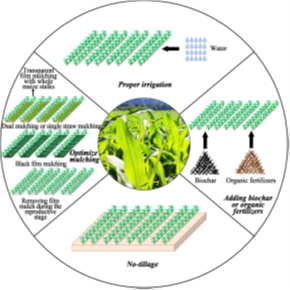Science of The Total Environment | March 1, 2023 |
Temperature plays a pivotal role in ecological processes, with climate change driving the need to understand its effects. While the impact of rising air temperature on maize shoot growth and yield has been extensively studied, little is known about how soil temperature affects root systems. Researchers from Northwest A&F University conducted a review to address this knowledge gap, focusing on the consequences of elevated soil temperature on maize root growth and communication with the aboveground parts of the plant.
As soil temperatures increase, maize faces additional challenges. The review outlines the effects of excessive soil temperature on the soil microenvironment, including soil respiration, microbial communities, carbon mineralization, and enzyme activity. It also highlights the negative impact on root water and nutrient absorption, as well as overall root-to-shoot growth.
To enhance maize yield and mitigate these challenges, the researchers propose various cultivation strategies. These include optimizing tillage methods, utilizing biochar amendments, applying organic fertilizers, optimizing irrigation practices, and implementing farmland mulching.
Understanding the intricate relationship between soil temperature, maize roots, and crop performance is vital for sustainable agriculture. By adopting effective cultivation approaches, we can navigate the challenges of changing soil temperatures and ensure food security.






